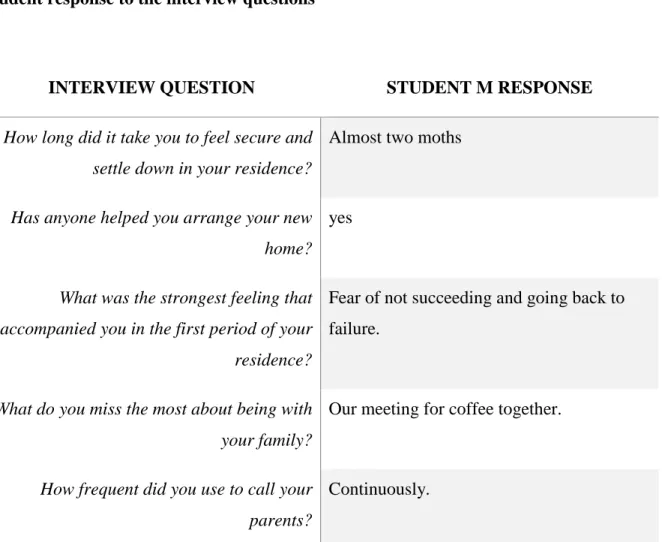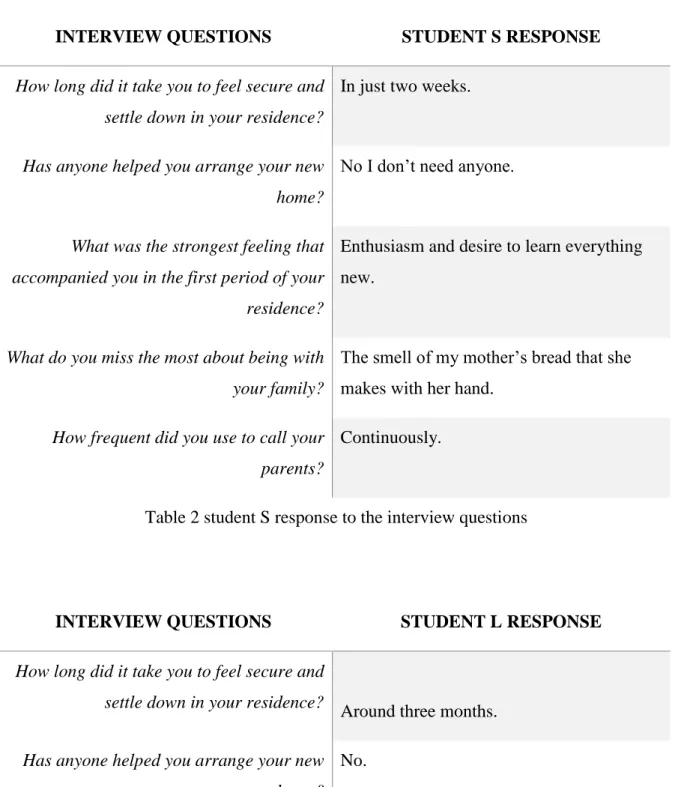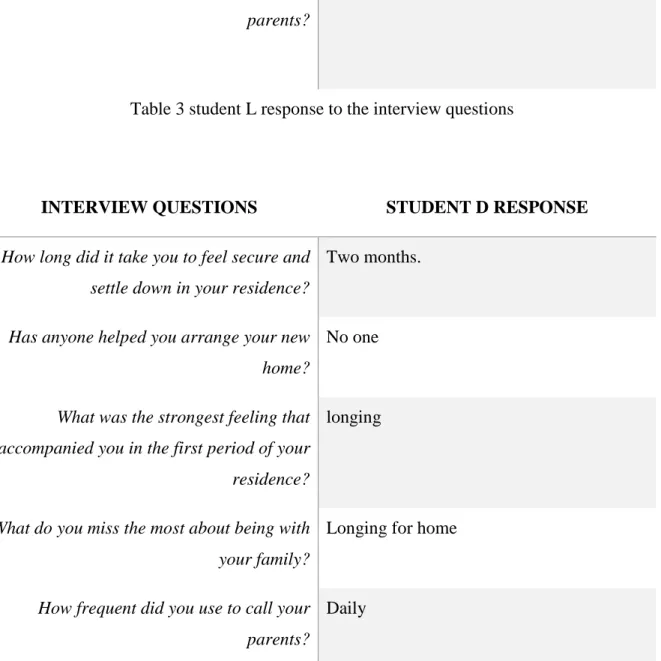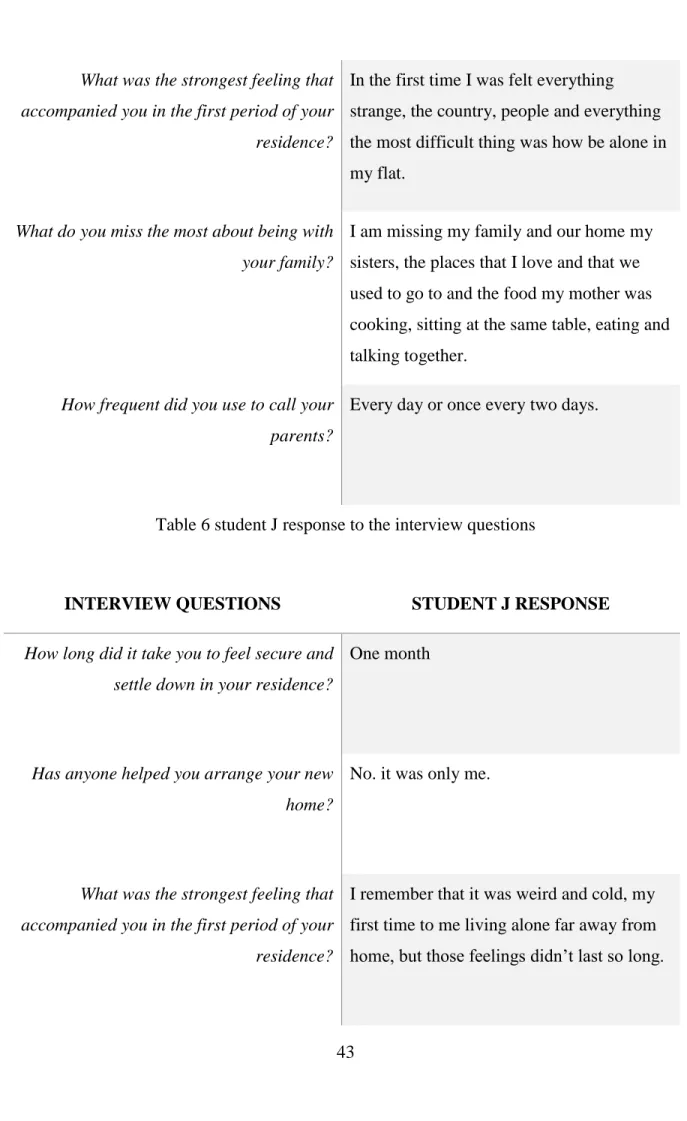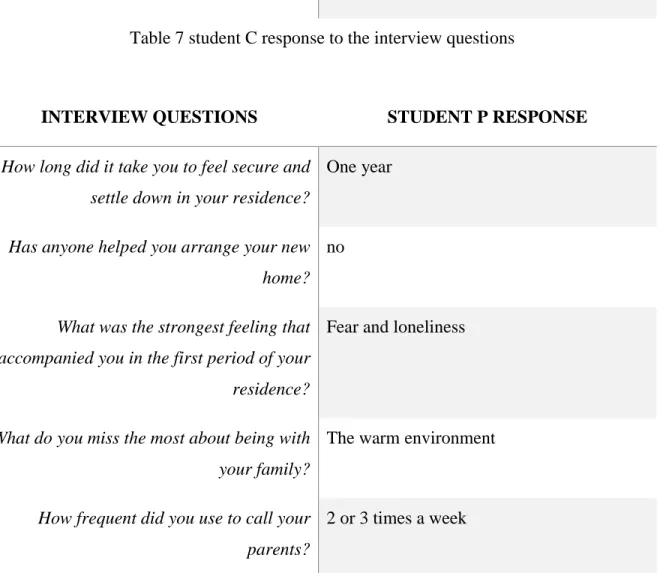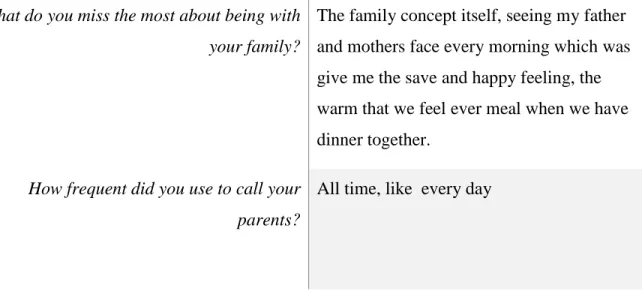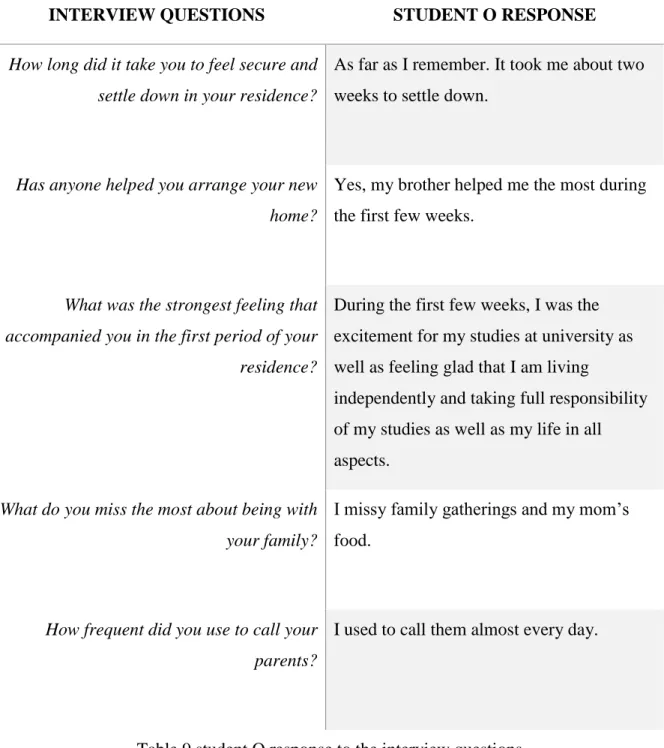51 Figure 15 the student's answer to the survey question and its highest answer, which is yes. 52 Figure 17 the student's answer to the survey question and its highest answer, which is yes. 54 Figure 21 the student's answer to the survey question and its highest answer, which is yes.
54 Figure 22 the student answer to the survey question and the highest answer which is yes.
INTRODUCTION
- Background
- Statement of the problem
- Hypothesis
- Purpose of the study
- The rationale of the study
- Research Questions
The student dealt with university colleagues, university professors and the cleaner of the building where he lives, the new neighbor and the transport are also new. And what is the nature of the relationship between alienation and the negative impact that has occurred on the academic performance of students, which is the change of place and the decline in academic performance. Therefore, the researcher conducted this research to reduce the negative effects of the sense of alienation that the student suffers.
In addition, the researcher offered multiple solutions to cope with the fact that the student dropped out of university studies and returned to his parents and other solutions for the frequent repetition of the first year of university.
Methodology
Subject
Material
Procedure
Literature review
Effects of emotional intelligence on expatriate students
This shows that immigrant students will not only face the common challenges of moving from school to college, but also the fact of being separated from family and hometown in a completely new environment alone (Luo, 2014), in addition to starting their a new level. education. Therefore, the amount of pressure on immigrant students comes from two main directions: 1) the greater displacement from school to college and 2) the greater displacement of moving to a new country alone (Bradberry & Greaves, 2009). Emotional intelligence (EI), which has the power to influence and guide human behavior, has become one of the most reliable indicators of personal and professional success in recent years (Cherniss, 2000). Good emotional intelligence (EI) is characterized by high sensitivity and social awareness of others, as well as improved understanding and management of one's emotions (Golemean & Daniel, 2020).
Numerous studies have proven that EI has a positive effect on worker performance and general well-being (Taksic, 2002). This shows the crucial importance of emotional intelligence on students and how it is a large part of the student's well-being (Gottman, 2014). Moreover, in the first year of the expatriate students in college in their foreign country alone; their mental health will be at its lowest from the significant huge shift in environment, social circle and sudden independence (Nelis, Quoidbach, Mikolajczak & Hansenne, 2009).
Thus, the student's well-being will be negatively affected, such as their sleep cycles (Pusztai, Rozmann, Horvath, Szunomar &. The negative academic performance of expats was caused by low emotional intelligence due to the significant independence of the expat students (Mohzan, Hassan & Halil, 2013), where students performed poorly on the various exams (both internal and external). families when they first enter university (Samouei, Rahele, Ahmad, Zamani, Amir, Hamid & Mariam), a majority can of these students find learning more of a burden than an opportunity. Kvapil, 2007), Thus, through the evaluation of emotional intelligence for people aged 18 years and older, the MSCEIT aims to identify the four branches of the Mayer and Salovey EI model. assessment (Maul, 2012).
Furthermore, this research can infer that expatriate students in their first year will have low academic performance as their emotional intelligence is inferior (Donaldson & Bond, 2004). This confirms the significant role that EI has in overall student behavior and well-being.
The effects of the absence of two of the pillars of Maslow’s Hierarchy of Needs Theory
In the early general definition of the importance of Maslow's hierarchy of needs, Bob Poston explained, many different professions use Maslow's hierarchy of needs as a useful assessment tool, especially those in the education and health care sectors. Accordingly, the time it takes for the foreign students to overcome and adapt to the major internal and external changes abroad; As established by Maslow in his Theory of Human Needs, he argues that if the security pillar of the hierarchy is not fully fulfilled and the sense of security is not felt internally, then the person cannot establish external success (Mathes & Eugene, 1981).
Thus, the academic performance of the foreign student will be negatively affected in the first year of university until they feel stable (Lowinger & chang, 2014). Further, many early studies supported Maslow's idea of the importance of family gifts. Similarly, the absence of the foreign students' families reduces their academic performance in the first year (Benson, Charles, Buckley & Medrich, 1980), as they were not divorced for 18 years and when they leave for university abroad for a long period alone, it affects the students mentally and.
Furthermore, according to Maslow, unless they adapt, they will continue to pursue the deficit need of the family of the third pillar of the Hierarchy (Gorman, 2010). While criticisms of the Maslow model's empirical validity and ethnocentrism are frequently raised in the literature, many of these criticisms have instead focused on the model's neglect of the spiritual dimension of life (Bouzenita & Boulanouar, 2016). Although there has been much research on that topic, few academics have considered the challenges international students face when running their own residence and how the culture of the new country negatively affects their academic performance (Akanwa, 2015).
This is supported by Schulz (1991) and Bacon, Susan & Michael (1990) as they outline the direct relationship between struggling in the foreign country's new language in academic success. In the early studies of the foreign students' linguistics barrier, Ganschow, Sparks, Javorsky, Pohlman & Bishop (1991) have argued that this is a diagnosis of foreign language deficiency.
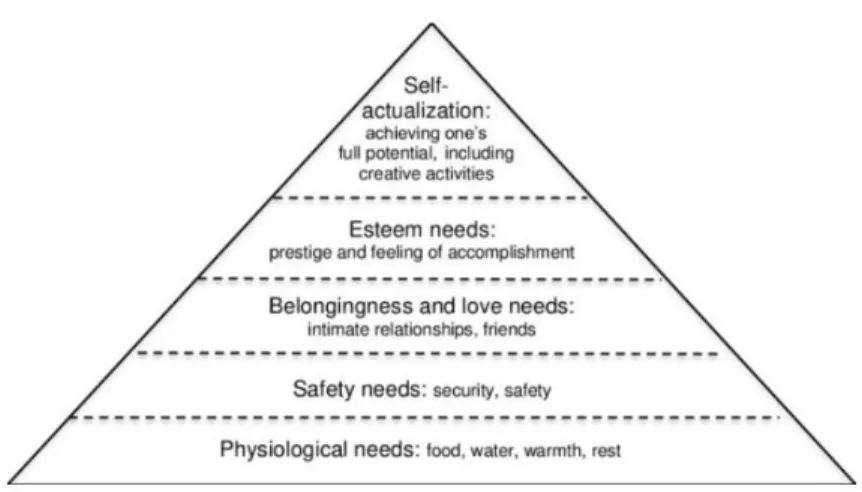
Analysis
Data collection
Our results show that student (N) year-end academic performance positively excels in their first year at university. However, the academic performance of the student (S) is underperformed due to the extended sudden independence and responsibility at a young age, with no family members around. Because emotional intelligence, mental health, and physical adaptation were negatively impacted by the student's profound change, this resulted in student's (S) poor performance.
Results
As for the personal interview questions for the expatriate students, 8 of them decided more than once to return to the home country, and leave the study, but they withdrew, and the longing for the family's friendship, warmth. Moreover, mother's food was the biggest obstacle that had the negative feeling to dominate in the expatriate students. Furthermore, the collective scientist was among all the sample that the researcher chose for the personal interview.
Discussion and recommendations
Discussion
Vice and what man is used to is what man seeks and is far from change, because psychologically it is scary for man, so what if the change of place, environment, people near and far and with change. of the academic phase met The school where the regular school with the usual uniform laws, attendance and departure dates and other details followed by the schools in a completely new phase of the nature of research and different dates of lectures and changes in clothing attend the university in it and the nature of the university professors who deal with the students and also that the students have chosen an academic specialization in life unlike the school with academic information from various sciences without specialization, the most prominent of which is to do research with small and many. details in a specific system that has nothing to do with schoolwork. Which is reflected in the psyche of the student by his desire not to face the search of his way to do university research and the constant postponement of his fear of starting with something he never knows, which leads to a fall of his mark.
Recommendations
Conclusion
Conclusion
34;Service quality in higher education institutions: qualitative evidence from the students' perspectives using Maslow's hierarchy of needs." International Journal of Quality and Service Sciences (2020). 34;Language problems faced by Nigerian Maritime Students in one Asian University. " Asia Pacific Journal of Maritime Education 1, no. Donaldson-Feilder, Emma J., and Frank W. 34; The relative importance of psychological acceptance and emotional intelligence for workplace well-being.
34;Emotional intelligence–A review and evaluation study." Journal of management Psychology 15, no. 2003), African Higher Education: An International Reference Handbook, Indiana University Press, p. quoting from a book}}: Explicit use of et al 34; Maslow's Hierarchy of Needs Theory: Applications and Critiques." Global Journal of Management and Business Studies 3, no. 34;The Impact of Emotional Intelligence on the Academic Performance of High School Students at Risk." PhD diss., University of the Incarnate Word, 2007.
34; Language Challenges Facing International Graduate Students in the United States." Journal of International Students 1, No. 34; The Validity of the Mayer–Salovey–Caruso Emotional Intelligence Test (MSCEIT) as a Measure of Emotional Intelligence." Emotion Review 4, no. 34; Towards a Better Experience: Examining Learner Needs in the Online Classroom Through Maslow's Hierarchy of Needs Model." Journal of online learning and teaching 8, no.
34;The Impact of Emotional Intelligence on the Academic Achievement of College Students – A Review." International Journal of Business Management & Research (IJBMR) 6, No. 34;Self-Actualization and Homeless Men: A Known-Group Examination of the Hierarchy of Needs of Maslow." Journal of Social Behavior and Personality 7, no. 34; The impact of emotional intelligence on students' academic achievement." International Journal of Humanities and Social Science Research 2, no.
34; Maslow's hierarchy of needs: a framework for reaching human potential in hospice." Journal of palliative medicine 9, no.
